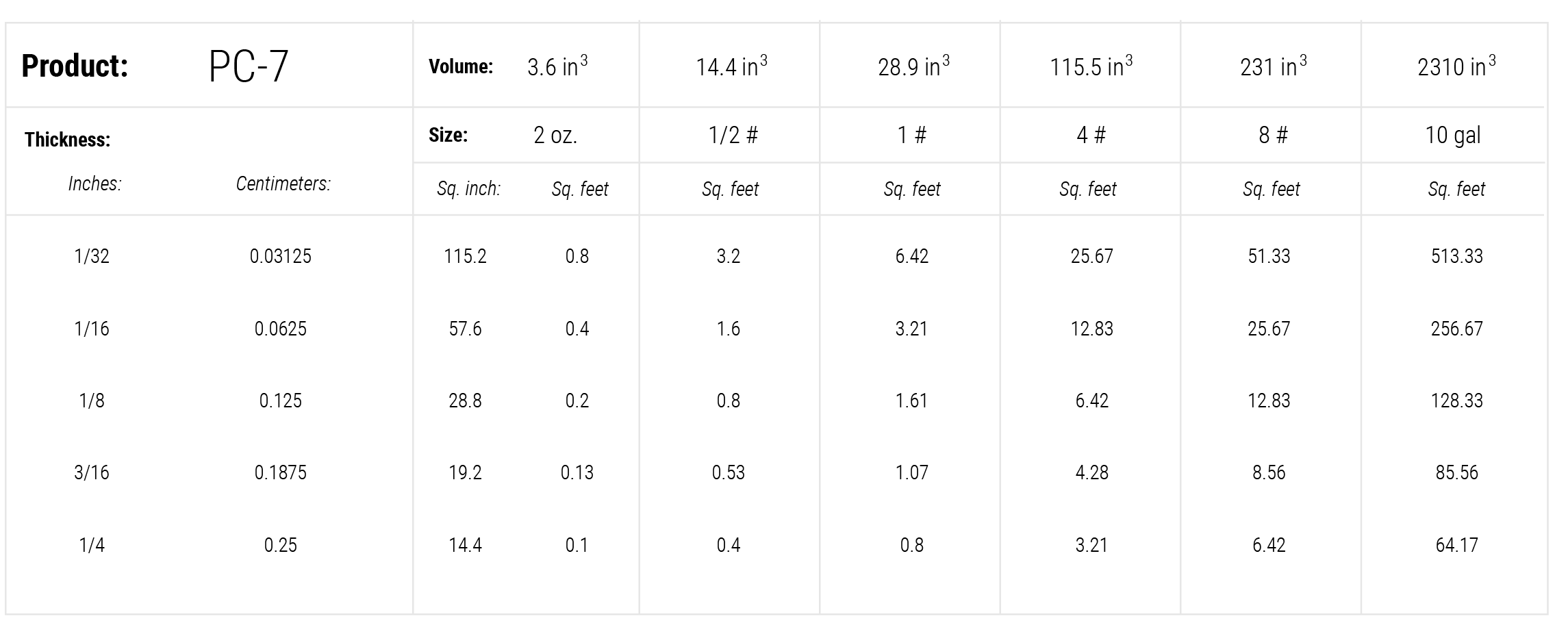PC-7® is the original tough job epoxy! This paste epoxy was originally formulated more than 60 years ago for the maximum in bonding power. Professionals to the do-it-yourselfers select PC-7® because of its exceptional adhesion to metals, ceramics, masonry and many plastics. PC-7® is designed for permanent repairs. Where other adhesives fail…PC-7® won’t! Choose PC-7® if you want to: seal a crack in a wall, attach a hanger to a ceramic plaque, seal a leak in an oil pan, repair a granite monument, fix a leak in PVC pipe connection, create a multimedia sculpture, and thousands of other repairs. When mixed, part A (gray) and the hardener part B (black) react to form a bond of tremendous strength. The PC-7® formulation is slow curing, but slow can be a good thing especially for large tasks.





